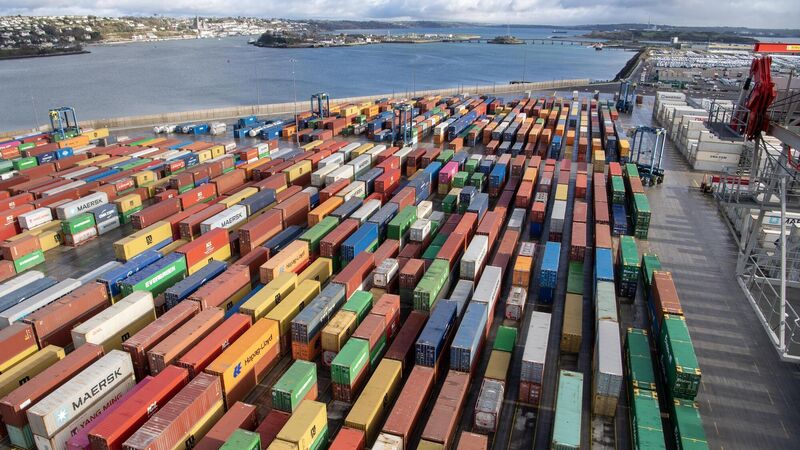Trump tariffs are hurting Irish, US and global economies — OECD

OECD warned public spending pressures were mounting, with higher spending and weaker tax revenues due to tariff effects reducing the budget surplus. Picture: Dan Linehan
Heightened uncertainty over tariffs will encourage Irish households to save more despite rising wages, the Organisation for Economic Co-operation and Development (OECD) has predicted.
The OECD noted the United States was Ireland’s biggest export market, and multinationals play a large role in Irish exports and tax revenues. In its economic outlook, the OECD said higher tariffs or non-tariff trade barriers would lower Irish growth and exacerbate medium-term fiscal challenges.
The Paris-based think tank urged Ireland to prioritise productivity-enhancing reforms, spending efficiency, and stricter domestic fiscal controls. It said GDP growth was projected to be 3.7% in 2025, before moderating to 2.3% in 2026, as trade fragmentation weighs on export-oriented sectors.
"The non-pharma chemical, dairy, and beverage industries are among the sectors directly affected by the 10% tariff on US imports from the EU," the OECD said. "An extension of the tariff to currently exempt pharmaceuticals, or a tightening of non-tariff barriers on services trade, could weigh heavily on growth."
It also warned public spending pressures were mounting, with higher spending and weaker tax revenues due to tariff effects reducing the budget surplus.
The OECD said the key role of a few large foreign-owned multinationals in export-oriented sectors, like pharmaceuticals or advanced computer and business services, could lower growth.
"On the upside, manufacturing multinationals’ significant sunk investments in both labour and capital equipment may help mitigate the impact of tariffs on growth. Amid significant skills shortages, the employment correction to the shock might be softened by firms’ reluctance to shed staff," they said.
Globally, the OECD said Donald Trump’s combative trade policies had tipped the world economy into a downturn, with the US among the hardest hit.
It slashed global forecasts for the second time this year, citing the impact of the American president’s tariff onslaught. The combination of trade barriers and uncertainty are hitting confidence and holding back investment, it said, while also warning protectionism is adding to inflationary pressures.
The OECD now forecasts global economic growth to slow to 2.9% this year, from 3.3% in 2024. It expects the rate of expansion in the US will tumble further, to 1.6% from 2.8% — an outlook that is significantly lower than its projection in March.
“Weakened economic prospects will be felt around the world, with almost no exception,” chief economist Alvaro Pereira said. “Lower growth and less trade will hit incomes and slow job growth.”
The assessment indicates how Trump’s policies have become the most pressing problem for the global economy, with no easy solution in sight. The situation could yet be exacerbated by retaliation from US trading partners, a further erosion of confidence, or another bout of repricing on financial markets, the OECD said.
The club of 38 rich countries published its forecasts just as its members’ ministers convene in Paris for an annual meeting. Top commerce officials are expected there, include US trade representative Jamieson Greer and EU trade commissioner Maros Sefcovic. Lin Feng, a representative from China’s Ministry of Commerce, is also scheduled to attend.










